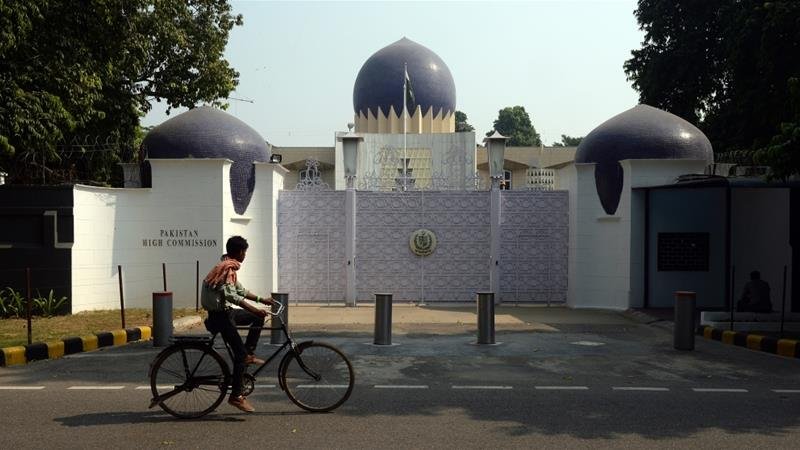Expulsion of Pakistan High Commission Officials

Pakistan on Monday summoned a senior Indian diplomat to register a strong protest over India’s decision. The development comes at a time when India-Pakistan ties are fraught over the reorganisation of Jammu & Kashmir by India. New Delhi needs to closely watch any diplomatic retaliation from Pakistan, writes Kavita Sewda
Indian law enforcement authorities on Sunday apprehended two Pakistan High Commission officials for indulging in espionage activities. The Ministry of External Affairs (MEA) in its statement said, “The Government has declared both these officials persona non grata for indulging in activities incompatible with their status as members of a diplomatic mission and asked them to leave the country within twenty-four hours”.
The MEA further stated that Pakistan’s Chargé d’affaires was issued a demarche in which a strong protest was lodged with regard to the activities of these officials against India’s national security. Pakistan’s Chargé d’affaires “was asked to ensure that no member of its diplomatic mission should indulge in activities inimical to India or behave in a manner incompatible with their diplomatic status,” it said.
India had last expelled a Pakistan High Commission official in October 2016, who was involved in a similar act of espionage. In a tit-for-tat response, a staffer posted in the Indian High Commission in Islamabad was expelled by Pakistan. Current developments might trigger a similar diplomatic retaliation from Pakistan.
The decision to expel the two officials comes at a time when India-Pakistan diplomatic ties have reached at an all-time low after Indian government revoked Article 370 that gave special status to the state of Jammu and Kashmir and bifurcated the state into two Union Territories in August last year. Also, the High Commissions of both countries are supervised by Deputy High Commissioners since then, as both countries had recalled their High Commissioners, further downgrading the diplomatic ties.
The Pulwama terror attack on February 14, 2019, that killed dozens of CRPF soldiers created a tensed situation wherein war looked imminent between the two nuclear-armed neighbours. India responded by conducting aerial strike at JeM terror camps in Balakot, deep inside Pakistani territory. This was followed by aerial combat between the air forces of the two nations when Pakistani jets entered India the following day.
Role of the Vienna Convention on Diplomatic Relations
Inviolability of Pakistani diplomatic staff stems from the Vienna Convention on Diplomatic Relations of 1961. It forms the legal basis of diplomatic immunity. Its Article 31 says diplomats “shall enjoy immunity from the criminal jurisdiction of the receiving State. He shall also enjoy immunity from its civil and administrative jurisdiction”
Immunity for diplomats served an important purpose in the cold war when they risked blackmail and honey traps and might otherwise have faced false charges in rigged courts. Such immunities were considered necessary for the smooth conduct of foreign relations as otherwise, diplomats were at risk of becoming hostages.

Pakistan’s response so far
The Indian Charge d’Affaires, Gaurav Ahluwalia, was summoned by Pakistan’s Foreign Office on Monday for a strong démarche, conveying Pakistan’s condemnation of the decision of the Indian government to declare two officials of the Pakistan High Commission in New Delhi persona non grata. It also rejected all “baseless allegations” against the staffers.
The Pakistan Foreign Office in its statement added that Islamabad has conveyed that the Indian action was in clear violation of the Vienna Convention on Diplomatic Relations and the diplomatic norms, that too in an already vitiated atmosphere. It informed that the officials were released on the intervention of Pakistan High Commission.

Way ahead
These developments are bound to add to the already strained ties between the two countries. In addition to managing the ongoing socio-economic turmoil in the domestic sphere due to COVID-19 pandemic, India needs to take care of the daunting challenges in its backyard.


















